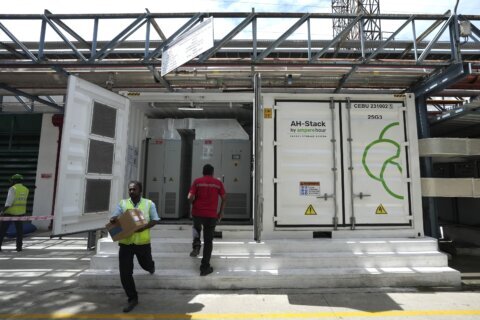As a homeowner, there are a number of upgrades you may be inclined to invest in. You may decide to renovate your kitchen with high-end countertops and appliances or finish your basement to increase your home’s living space. Those are improvements you — or a future buyer — can enjoy all year round.
But what about a swimming pool? In some cases, putting in a pool could open the door to added outdoor entertainment throughout the year.
But what if you live in a climate where you’re only going to get seasonal use from a swimming pool? Is a pool worth installing and maintaining if you’re only able to use it a few months out of the year?
[READ: Top 8 Pros and Cons of Saltwater Pools]
How Much Does It Cost to Install a Swimming Pool?
The amount you’ll spend on a swimming pool will hinge on a number of factors, including:
— The size and shape of the pool
— The condition of your property
— The features you want your pool to have
Home improvement network and information company Angi says the typical cost to install a pool is $44,196 to $86,287, with an average cost of $64,719. This doesn’t include the cost of maintenance, which Angi estimates at $960 to $1,800 per year. You may be able to lower this cost by doing some maintenance yourself. Either way, your best bet is to contact a few different pool contractors in your area and get quotes so you can compare your options.
All told, a swimming pool is generally not an inexpensive upgrade. If you’ll only be able to use yours a few months out of the year, you’ll need to decide whether it’s worth spending the money and taking on the extra work.
The Benefits of Installing a Swimming Pool for Seasonal Use
The upside of installing a pool is clear — you can make your summers more comfortable and enjoyable. If you have children, a swimming pool could take the place of a pool club membership or camp tuition, so the money you spend to install one might save you money in other ways. A pool may also add to the resale value of your home and help move your home off the market quickly when you’re ready to sell.
[Read: 12 Home Improvements That Don’t Add Value]
The Drawbacks of Installing a Swimming Pool for Seasonal Use
On top of cost and maintenance, there are some other drawbacks to having a swimming pool. For one thing, you may find that your homeowners insurance costs skyrocket once you introduce a pool into the mix.
Also consider that your utility bills might rise once you have a pool in place — not just because of the water to fill a pool, but also due to the cost of heating a pool. If you live in an area where the summer days are warm but the nights tend to get chilly, then heating your pool may be a must.
The space a pool occupies in your backyard is going to take away from something else. If you have kids who enjoy playing sports or running around, there may not be as much room once you have a pool occupying a large chunk of your property. That could prove frustrating during the nine months of the year or so when your yard is usable but your pool is not.
[Ready to Take the Plunge? At-Home Plunge Tub Options]
How a Swimming Pool Might Impact Your Home’s Value if it Only Gets Seasonal Use
It may be worth it to you to install a swimming pool despite only being able to use it a few months out of the year. But will having a pool increase your real estate value or hurt it?
Angelica Ferguson VonDrak, associate real estate broker based in Rhinebeck, New York, says that even though swimming pools only get seasonal use in her market, the Hudson Valley/Catskills region in upstate New York, they’re still a good investment.
“(Pools) are one of the most requested amenities with buyers and one of the upgrades that will add the most value to your home,” she says. “In the last couple of years since the COVID-19 pandemic, the demand for pools skyrocketed. And since it may now mean a year or longer on a pool contractor’s waiting list, buyers will pay a serious premium for a house with an existing in-ground pool.”
VonDrak also says that in her specific market, a pool can add two to three times the amount of its installation cost to a home’s value at resale. However, she says, “The ROI on the pool is subject to other property variables, like location, acreage, privacy, views. … so there’s no straight formula here.”
Frances Lisner, a licensed real estate salesperson at Daniel Gale Sotheby’s International Realty based in the New York City area, agrees. “In the NYC area, pools are an absolute gem for those who crave that lifestyle,” she says. “Trust me, I’ve never met a buyer who wanted a pool removed. In fact, there are way more buyers out there who’ve said ‘no thanks’ to a property because it lacked a pool or there was no room or permit to make their pool dreams come true.”
Of course, you may decide to put in a pool even if there’s no positive impact on your home’s value, and there’s nothing wrong with that. You can look at your pool as an investment in your personal happiness for as long as you’re living in your home. However, if a big part of your motivation is to increase your home’s value, then you may want to consider an upgrade that a future buyer can enjoy year-round.
As VonDrak says, “If you’re planning to do a big upgrade like a pool and you’re concerned about resale value, I highly recommend discussing with your real estate agent so you put your money where it really matters.”
More from U.S. News
Building a Backyard Pond: Is It Worth It?
Raised Patios, Rooftop Lounges and More: How Homeowners Are Transforming Small Yards In Big Ways
If You Can’t Swim Year-Round, Is a Pool Worth It? originally appeared on usnews.com







